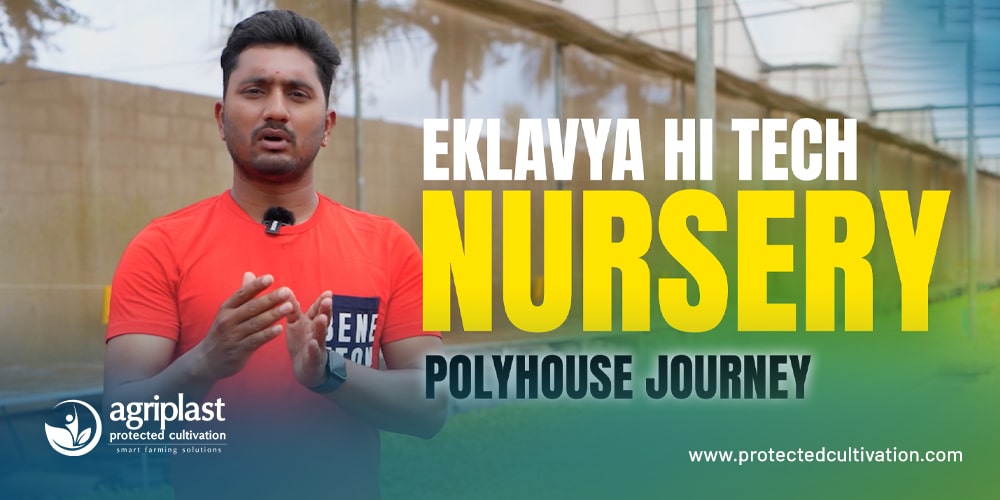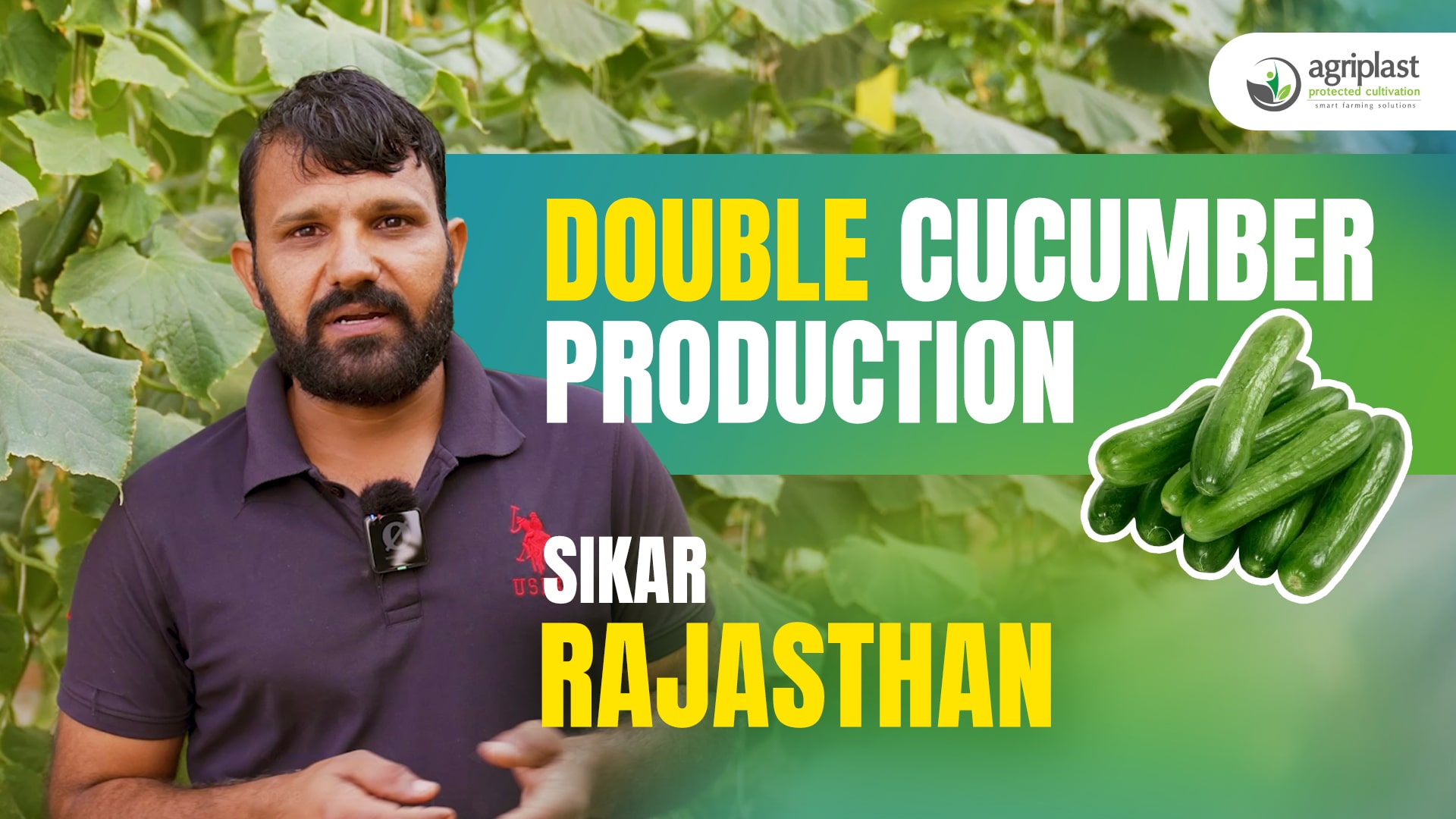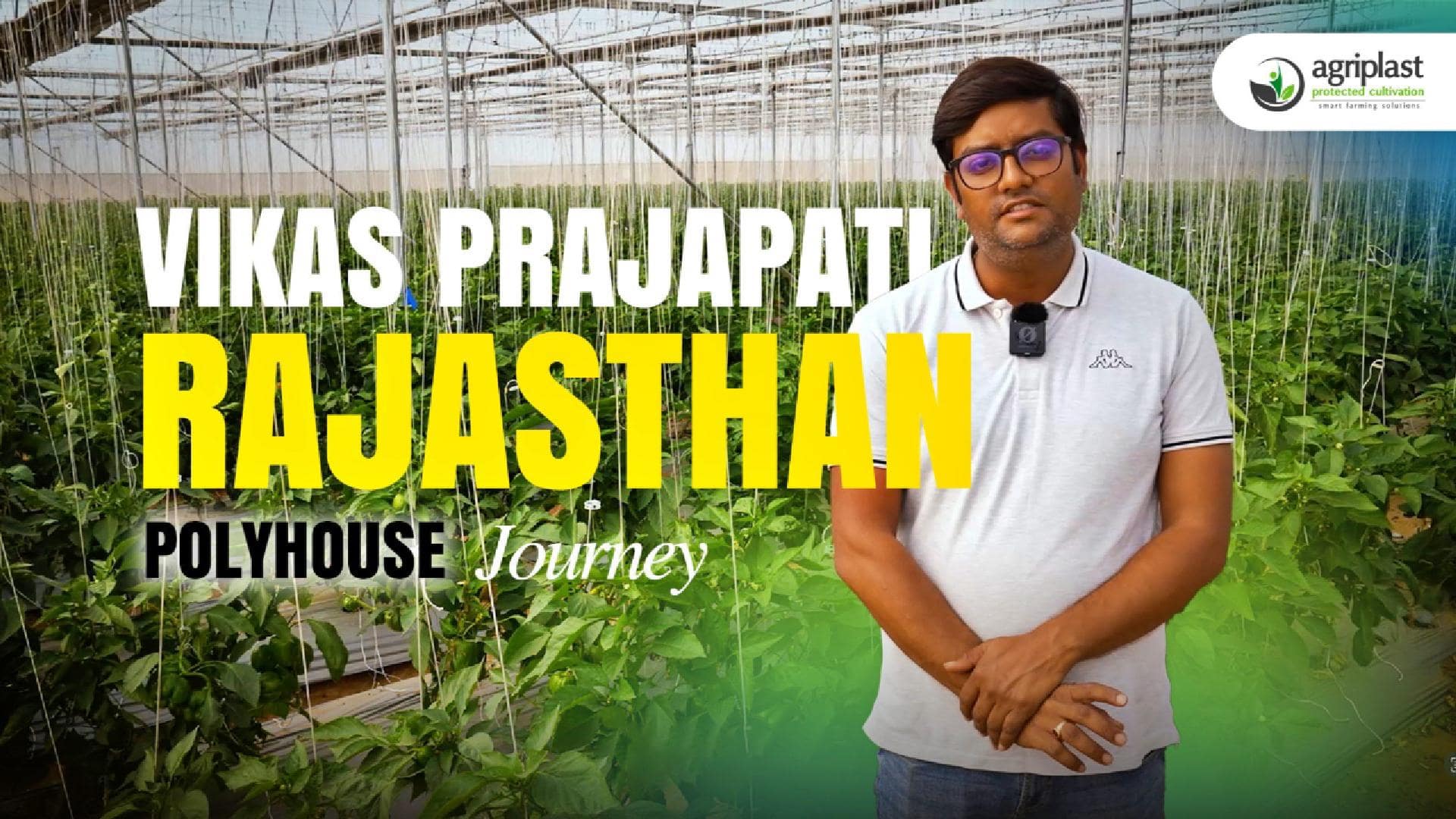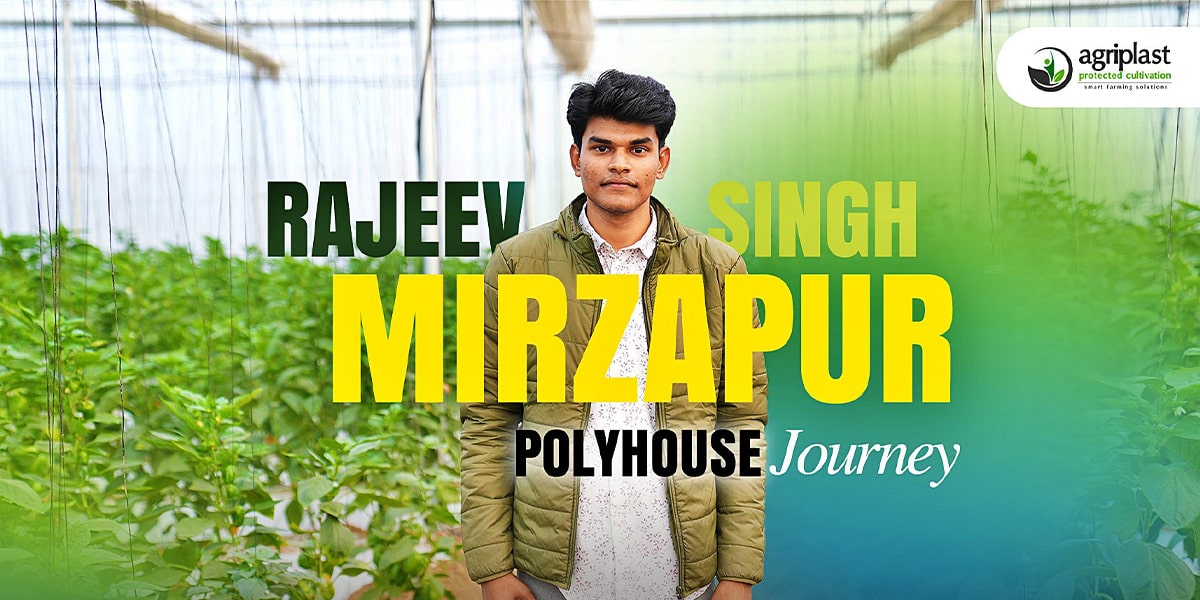Boosting Agribusiness with Integrated Pest Management in Polyhouses

The rise of modern, innovative farming techniques has led to the increasing adoption of protected cultivation practices such as polyhouses and greenhouses. However, alongside the numerous benefits of controlled crop cultivation comes the challenge of sustaining a healthy balance in the growing environment.
As pest management remains a crucial aspect of agricultural success, exploring alternative methods for pest control is essential to improve crop yield and maintain the sustainability of protected cultivation practices. In this article, we'll delve into the concept of integrated pest management (IPM) in polyhouse farming and discuss how Agriplast Protected Cultivation, India's largest greenhouse factory, supports farmers in implementing sustainable and effective pest management strategies.
Integrated pest management is a holistic approach that seeks to minimize the use of harmful chemical pesticides while still effectively controlling pests in agricultural settings. By incorporating a combination of preventive measures, constant monitoring, and targeted interventions, IPM aims to reduce the environmental impact of pest management while safeguarding the long-term viability of agribusiness.
In the context of polyhouse farming, IPM techniques are particularly beneficial, as they help improve crop yield, ensure the health of plants, and prolong the effectiveness of the polyhouse system. By addressing potential pest problems head-on and adopting eco-friendly pest control methods, farmers can protect their investments, guarantee a better-quality product, and ultimately achieve sustainable success in the realm of protected cultivation.
With Agriplast Protected Cultivation's expertise in polyhouse technology and their commitment to supporting farmers throughout all stages of the cultivation process, implementing IPM techniques becomes a seamless and accessible endeavor. In the sections that follow, we'll outline the key components of IPM in polyhouse farming and demonstrate how Agriplast Protected Cultivation's guidance and services facilitate the adoption of these sustainable pest management practices.
Boosting Agribusiness with Integrated Pest Management in Polyhouses
In the world of agriculture, effective pest management is essential to ensure optimal crop yield and quality. For polyhouse farmers, adopting integrated pest management (IPM) techniques can make an immense difference in the overall sustainability and success of their operations. In this article, we'll discuss the key elements of IPM in polyhouse cultivation and highlight Agriplast Protected Cultivation's support in implementing these environmentally friendly pest control strategies.
IPM Principles for Polyhouse Farming
1. Prevention and Cultural Practices
The first line of defense against pests in polyhouse farming is to implement preventive measures and maintain a healthy growing environment. Proper sanitation, adequate ventilation, and the use of resistant crop varieties are crucial to prevent infestations from occurring in the first place. Additionally, maintaining an appropriate balance of soil nutrients, proper irrigation, and optimal temperature regulation contributes to making the polyhouse environment less conducive to pests, ultimately reducing the need for chemical interventions.
2. Monitoring and Pest Identification
Regular monitoring is an essential component of integrated pest management in polyhouses. By closely observing crop development and the presence of pests, farmers can make informed decisions about when, where, and how to intervene. Accurate identification of pests is crucial to ensuring that the most appropriate and effective control measures are employed. Moreover, routine monitoring enables farmers to detect early signs of pest activity before it becomes a significant issue, facilitating timely intervention and minimizing potential crop damage.
Targeted and Sustainable Pest Control Techniques
1. Biological Control
Biological control involves the use of natural enemies, such as predatory insects and parasitic microorganisms, to control pest populations. In polyhouse farming, this approach can be highly effective, as the controlled environment allows for optimal conditions to facilitate the activity of beneficial organisms. With the guidance and support of Agriplast Protected Cultivation, farmers can introduce beneficial insects and microorganisms into their polyhouses and maintain a stable predator-prey balance, ultimately reducing the need for chemical controls.
2. Physical and Mechanical Controls
Physical and mechanical control methods for pest management in polyhouses include the use of physical barriers, traps, and manual removal. These techniques can be particularly useful in the early stages of pest infestations when populations are still small and manageable. Agriplast Protected Cultivation can provide farmers with the tools and knowledge necessary to effectively utilize these control methods, ensuring minimal disruption to their crop cycles and overall business operations.
3. Reduced-Risk Chemical Controls
When necessary, IPM in polyhouse farming may still involve the use of chemical pesticides, though with strict caution and strategically targeted applications. The aim is to minimize the environmental impact and health risks associated with chemical use while effectively managing pest populations. Agriplast Protected Cultivation helps farmers select the most appropriate, low-risk chemicals for their specific pest issues and educates them on the responsible application techniques that minimize potential harm and maximize effectiveness.
Agriplast Protected Cultivation's Support for IPM Adoption
1. Expert Guidance and Training
Agriplast Protected Cultivation's team of experienced professionals is well-equipped to help farmers successfully incorporate integrated pest management techniques into their polyhouse cultivation practices. Their specialists offer personalized consultations, comprehensive training, and ongoing support to ensure farmers have the skills and knowledge necessary to implement IPM strategies effectively and sustainably.
2. Quality Polyhouse Products and Accessories
Agriplast Protected Cultivation provides farmers with a range of high-quality polyhouse products and accessories designed to support the implementation of integrated pest management techniques. From pest-resistant crop varieties to advanced monitoring tools, Agriplast Protected Cultivation is committed to making IPM adoption accessible and straightforward for all polyhouse farmers.
Conclusion
Embracing integrated pest management techniques in polyhouse farming can significantly improve crop yield, quality, and overall sustainability of agribusiness operations. With Agriplast Protected Cultivation's commitment to offering expert guidance, quality products, and comprehensive support, farmers can confidently navigate their journey toward environmentally responsible pest control practices.
By adopting these innovative solutions, polyhouse farmers can secure their long-term success and leave a positive impact on the environment and future generations. Visit our website today to explore our polyhouse suppliers in India.






















